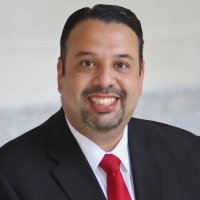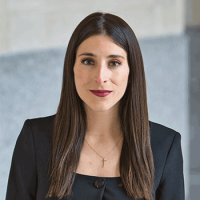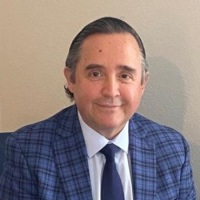Israel at 75: The Views From Latin America
As Israel celebrates 75 years of statehood, it is a moment to mark how Israel’s influence and reach extends well beyond its immediate neighborhood. Nowhere is that more true than in the Americas.
The Western Hemisphere and Israel have a long-standing relationship. In 1947, Uruguay and Guatemala were among the first countries to vote for statehood for Israel. Uruguay was the first South American country to formally recognize Israel, while Guatemala was among one of the first countries to open an embassy in Jerusalem after the United States.
Israel has a longstanding and historic friendship with the Western Hemisphere, many Jewish communities and a vast array of economic and commercial agreements and technology cooperation. Trade between Israel and the Western Hemisphere was approximately $6 billion in 2022 with Brazil being its largest trading partner.
The relationship between the region and Israel is not without its challenges. As we remember and commemorate the terrorist attacks in Argentina almost 30 years ago against the Jewish Center and the Israeli Embassy orchestrated by Hezbollah and Iran, it is increasingly troubling that Iran’s dictator held a Latin America tour recently and visited Venezuela, Nicaragua, and Cuba.
Select Quotes
Lila Abed
Director, Mexico Institute, Wilson Center
"Israel has a long-standing and historic friendship with the Western Hemisphere. There are many Jewish communities in the region, and Israel has a vast array of economic and commercial agreements and technology cooperation."
Eddy Acevedo
Chief of Staff and Senior Advisor to the President and CEO, Wilson Center
"Israel and the US have a very unique bond. It is a symbiotic relationship: what is good for the United States is also good for Israel."
"Israel remains the only true democracy in the Middle East."
"Among countries in the OECD, Israel had the fourth best economy in 2022."
Sarah Cohen
Deputy Head of Mission (Foreign Policy & National Security), Embassy of Canada to the United States
"In a world with geopolitical shifts, right now can be quite terrifying for practitioners of foreign policy and a quiet and enormous challenge for our global leadership."
"The concept of friends, of alignment, the concept of protection, and values, and promotion of democracy, of human rights, of free and open trade, prosperity and security, is a space where we all need to double down."
H.E. Iván Duque Márquez
Chair and Distinguished Fellow, Iván Duque Center for Prosperity and Freedom, Wilson Center
President of the Republic of Colombia (2018-2022)
"Israel shares with Latin American countries the spirit of democracy, of having checks and balances, a market-driven economy, and the idea that security is a democratic value, a democratic asset and definitely a social asset."
"The 75 years of the history of Israel have been the history of a resilient country."
"Israel, has been a country that has seen every single odd as an opportunity, since water management, to precision agriculture and irrigation, to cyber security to a different form of entrepreneurship in a multiplicity of sectors."
Hon. Jonathan Peled
Deputy Director General of the Latin America & Caribbean Division, Ministry of Foreign Affairs of Israel
"Political, economic, security: those would be, in my view, the three major challenges we face today."
"We need to put more focus on CARICOM and the Caribbean states."
Hon. Alfonso Quiñónez
Ambassador of Guatemala to the US (2020-2024)
"Being a friend of Israel pays off."
"We need to continue working toward normalization with the Arab world."
Introduction

Keynote Speaker

President of the Republic of Colombia (2018-2022)
Moderator

Panelists



Hosted By

Latin America Program
The Wilson Center’s prestigious Latin America Program provides non-partisan expertise to a broad community of decision makers in the United States and Latin America on critical policy issues facing the Hemisphere. The Program provides insightful and actionable research for policymakers, private sector leaders, journalists, and public intellectuals in the United States and Latin America. To bridge the gap between scholarship and policy action, it fosters new inquiry, sponsors high-level public and private meetings among multiple stakeholders, and explores policy options to improve outcomes for citizens throughout the Americas. Drawing on the Wilson Center’s strength as the nation’s key non-partisan policy forum, the Program serves as a trusted source of analysis and a vital point of contact between the worlds of scholarship and action. Read more


Middle East Program
The Wilson Center’s Middle East Program serves as a crucial resource for the policymaking community and beyond, providing analyses and research that helps inform US foreign policymaking, stimulates public debate, and expands knowledge about issues in the wider Middle East and North Africa (MENA) region. Read more


Mexico Institute
The Mexico Institute seeks to improve understanding, communication, and cooperation between Mexico and the United States by promoting original research, encouraging public discussion, and proposing policy options for enhancing the bilateral relationship. A binational Advisory Board, chaired by Luis Téllez and Earl Anthony Wayne, oversees the work of the Mexico Institute. Read more


Canada Institute
The mission of the Wilson Center's Canada Institute is to raise the level of knowledge of Canada in the United States, particularly within the Washington, DC policy community. Research projects, initiatives, podcasts, and publications cover contemporary Canada, US-Canadian relations, North American political economy, and Canada's global role as it intersects with US national interests. Read more



